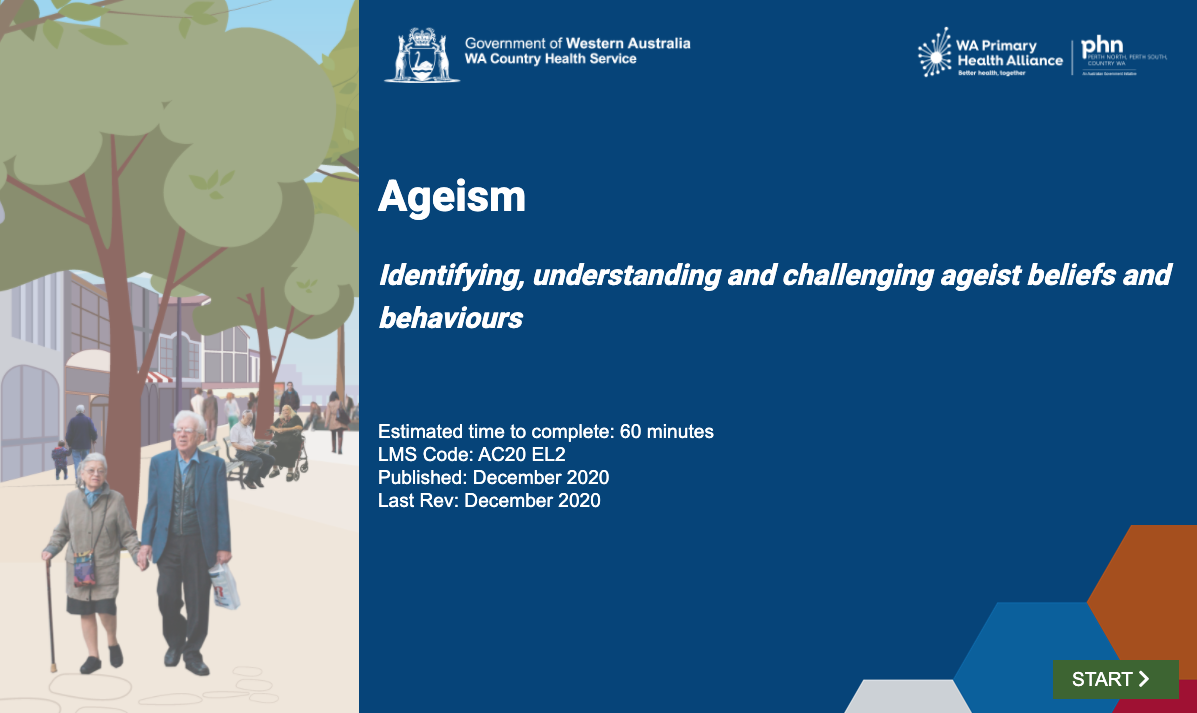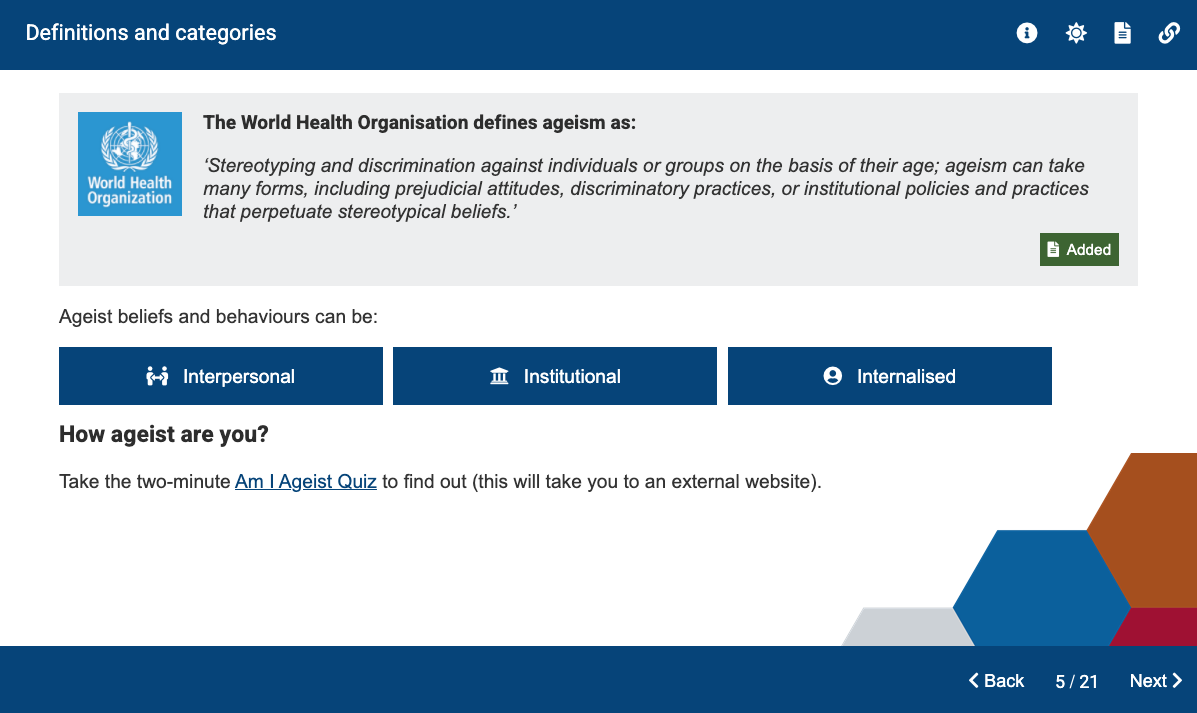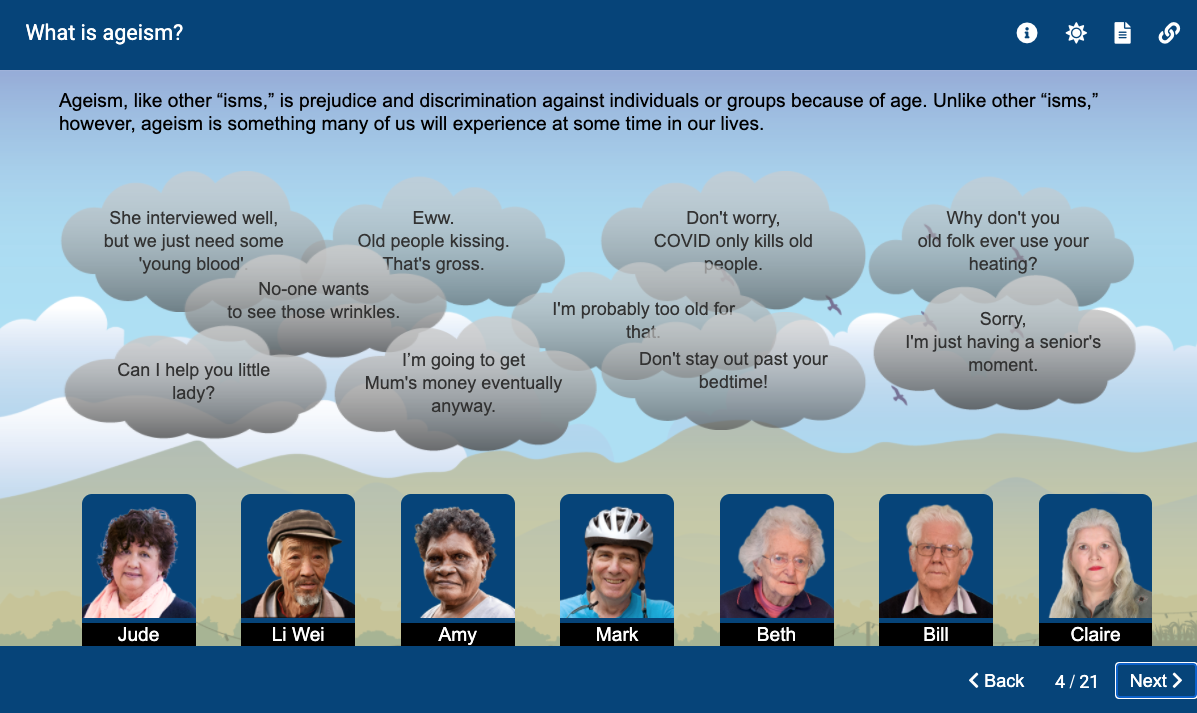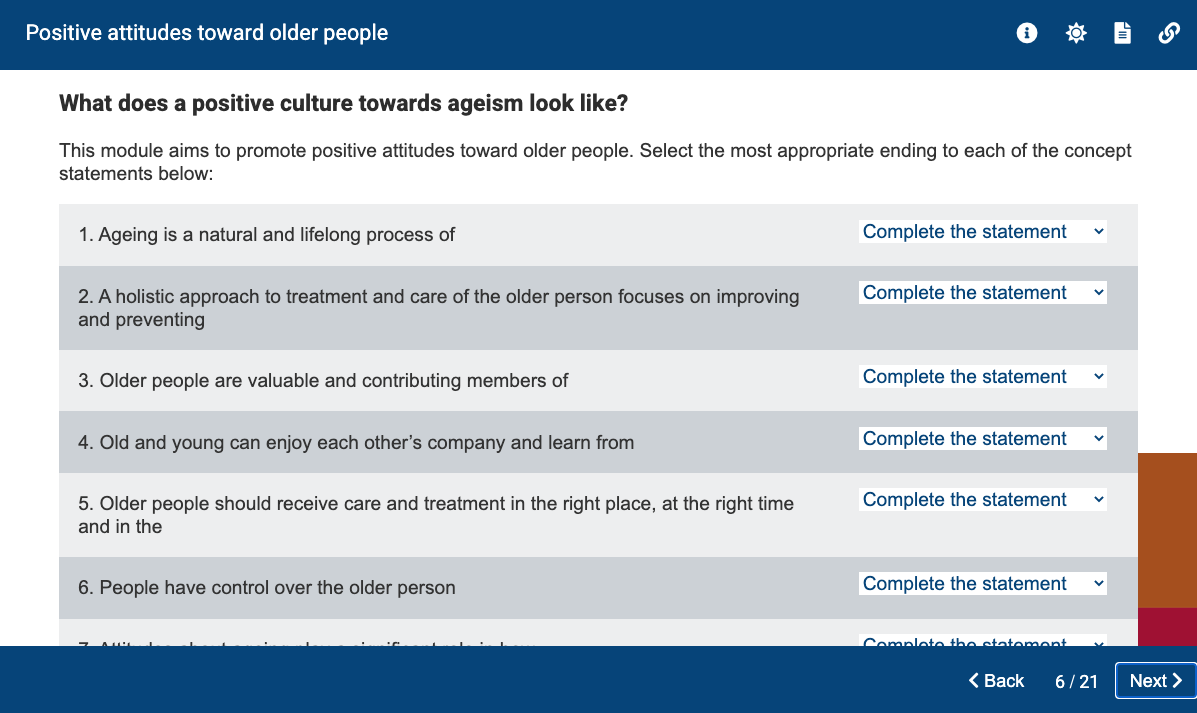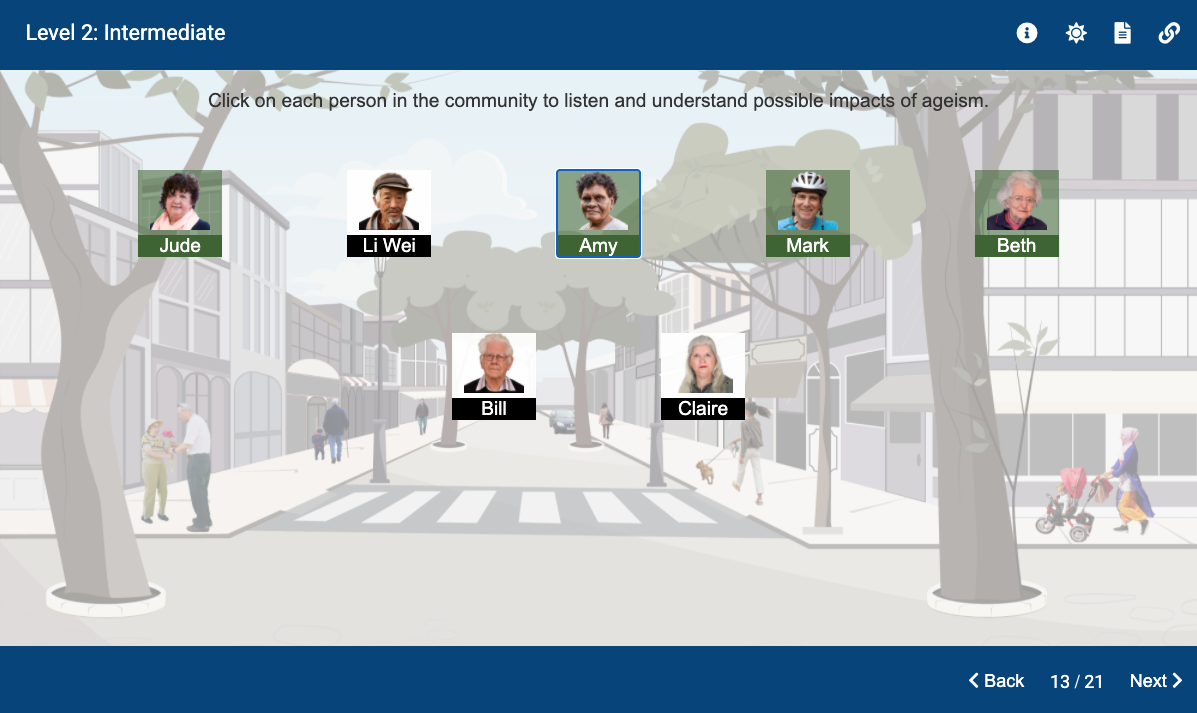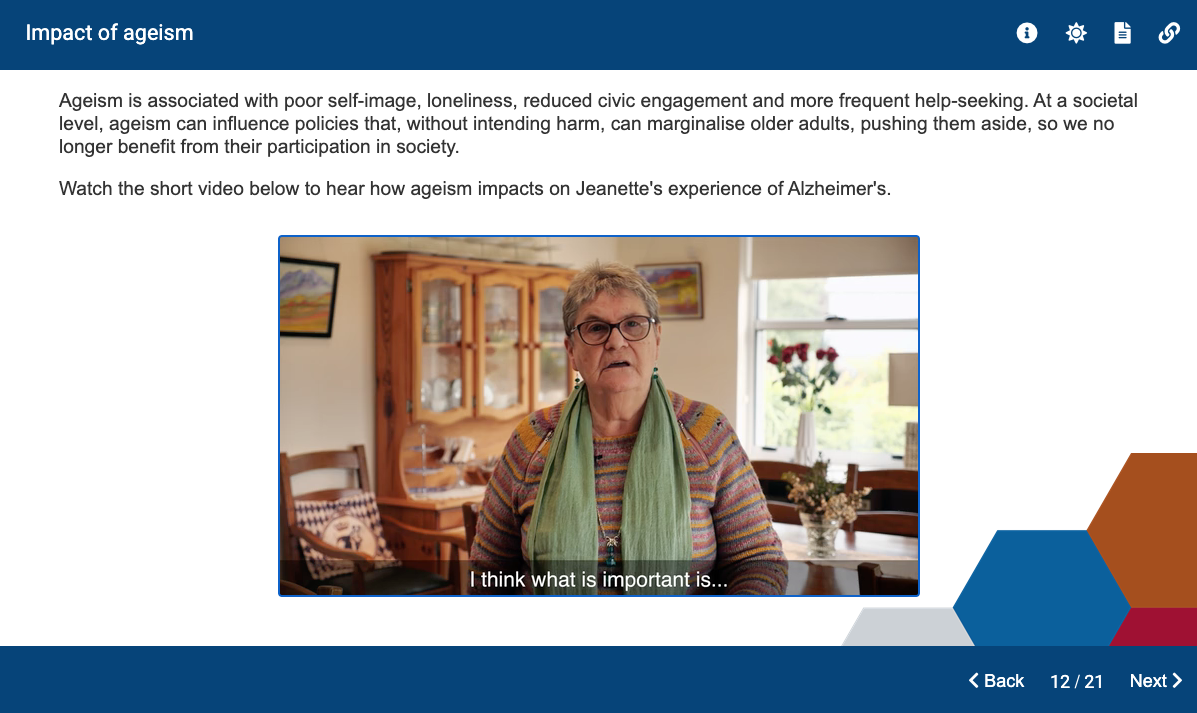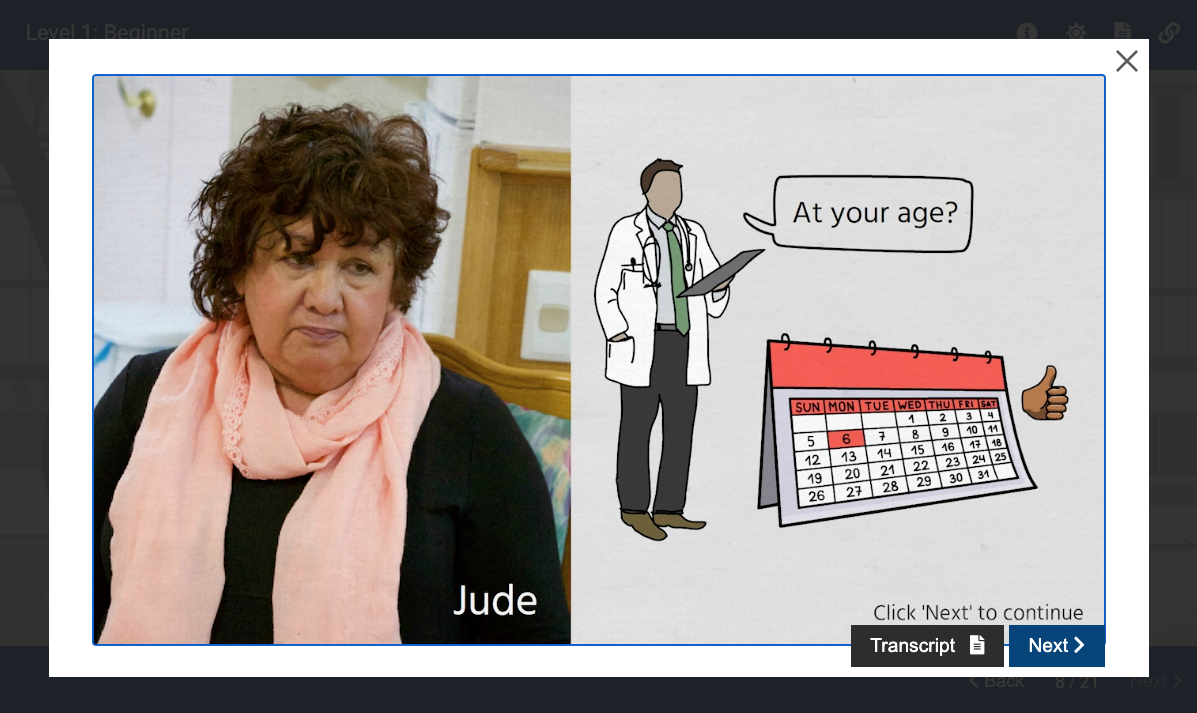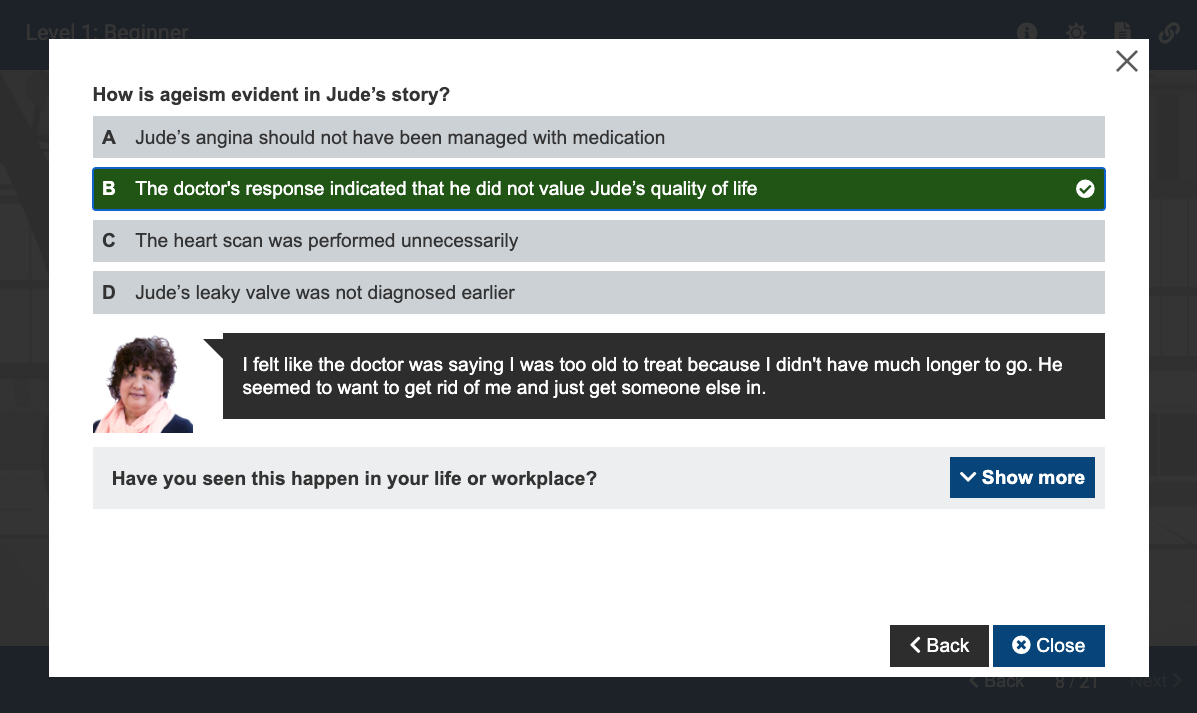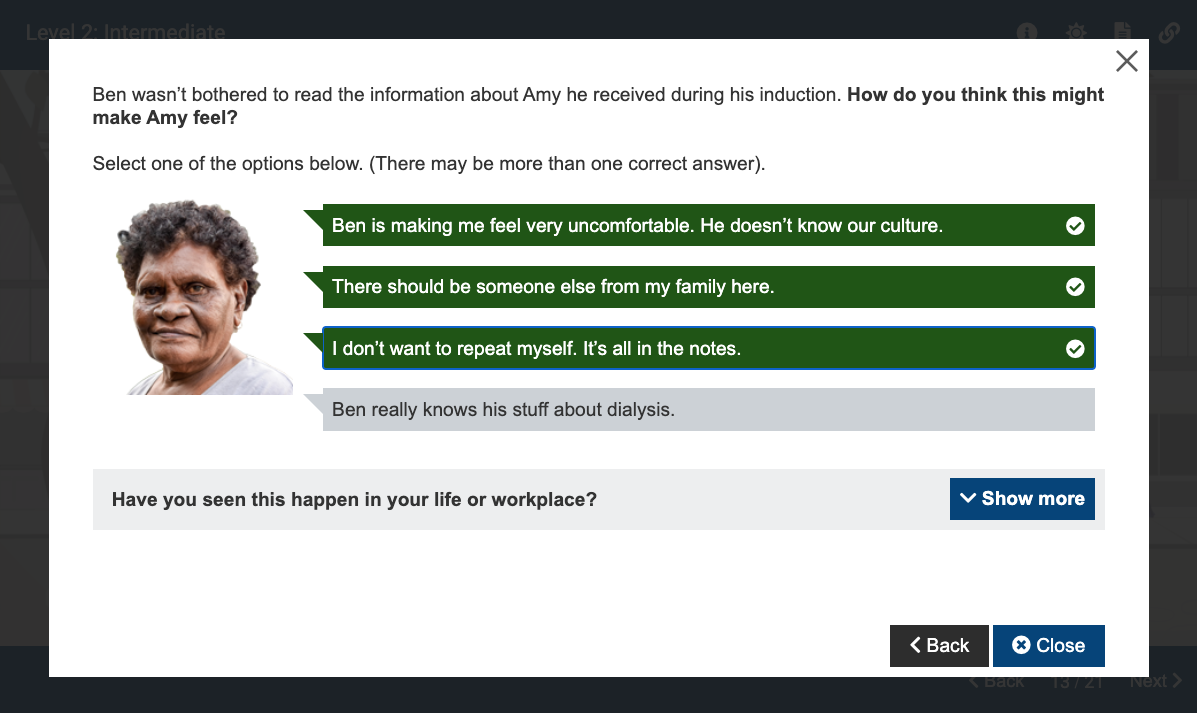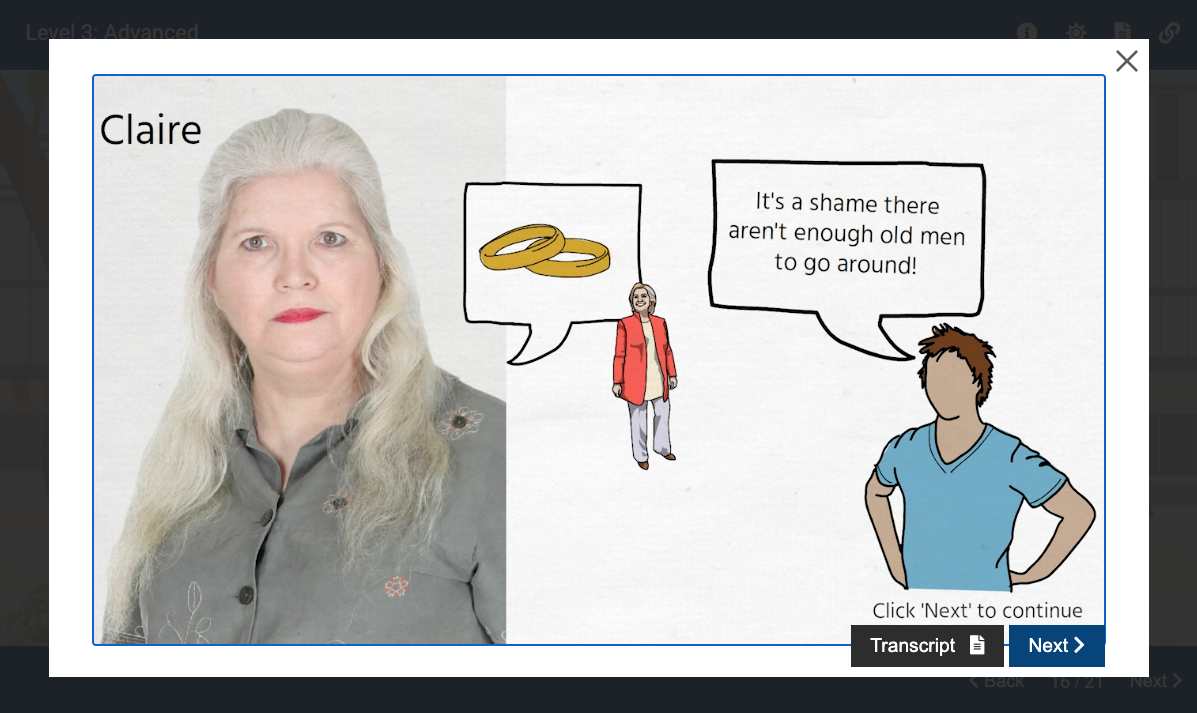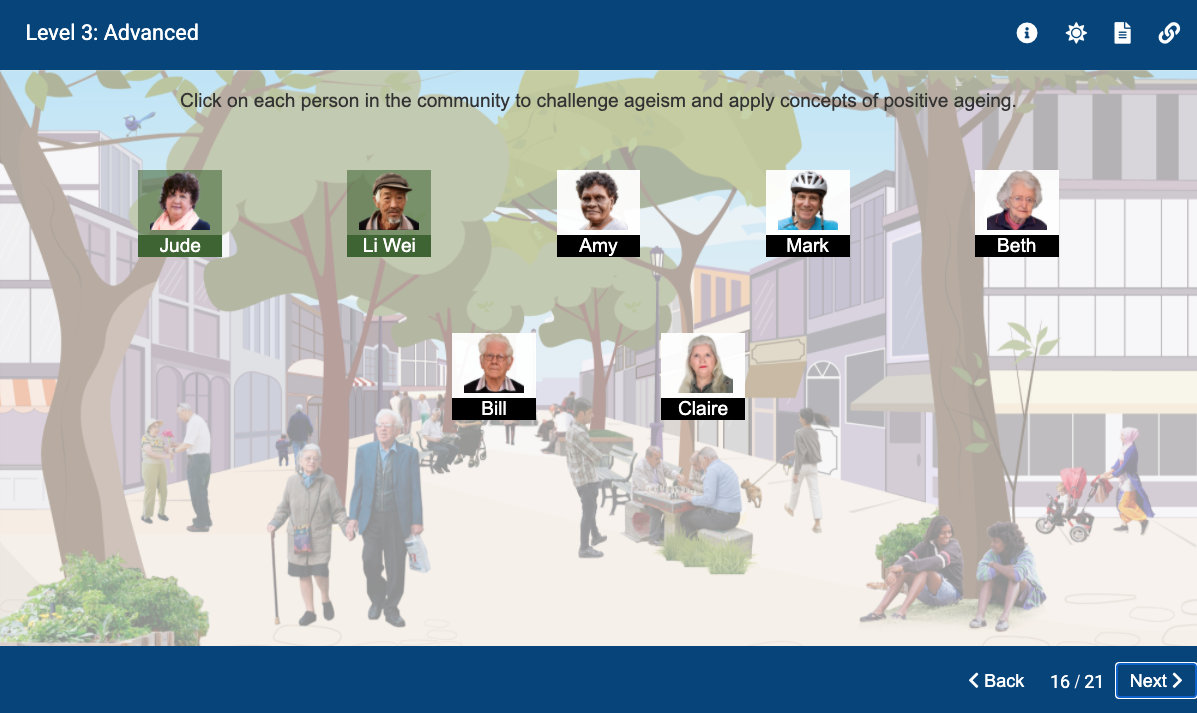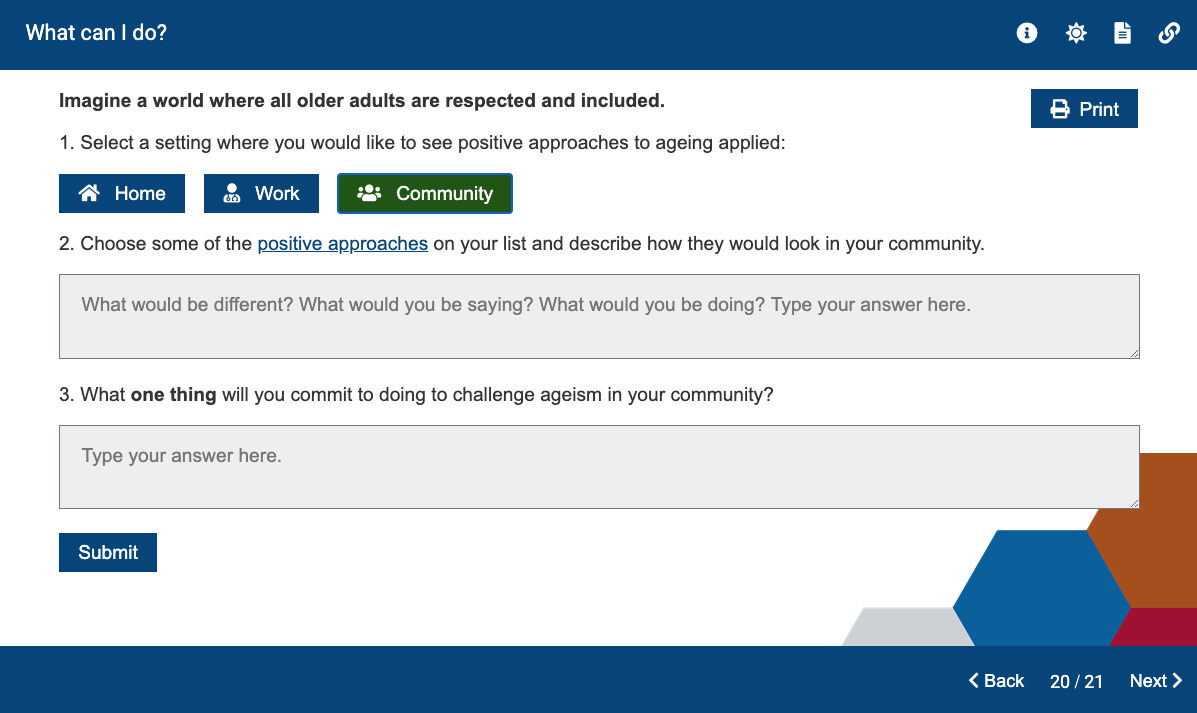Sample of work: Ageism - Identifying, understanding and challenging ageist beliefs and behaviours
Ageism is so common in our lives that it’s often laughed off or viewed as normal. In healthcare, it can appear as a practitioner’s belittling comment, reluctance to recommend treatment or an outright dismissal of a patient’s concerns.
The negative impacts of age-based bias on the health outcomes of older people are becoming increasingly well documented. The effects of ageist beliefs and behaviours on the mental, emotional and physical health of older people can range from demeaning to life-threatening.
Online course on ageism
The Ageism Online Learning Course developed in collaboration with WA Country Health Service and WA Primary Health Alliance aims to raise awareness of ageism and promote positive change in how we think about ageing.
Addressing ageist beliefs and behaviours
This mobile-friendly course helps health workers and community members begin to identify, understand and challenge ageist beliefs and behaviours in the workplace and in their community.
Learners work through the three levels of the module, identifying ageist beliefs and behaviours, understanding the impact of ageism, and finally challenging ageism and applying the concepts of positive ageing.
Storytelling approach using real-life examples
Learners are introduced to the beliefs, behaviours and impacts of ageism through the stories of seven characters, whose real-life experiences of ageism challenge the learner to examine their own beliefs and behaviours.
Real-life examples of ageism were sourced from stakeholder groups. Voiceovers from learner groups further contribute to the relatability of the course.
Self-paced, visual and interactive for maximum engagement
Learning is self-paced, highly visual and interactive with videos, illustrations and quizzes engaging the learner throughout. Reflection and prompts help the learner to apply learning to their own lives.
Intersectional approach to ageism
In level three of the module, learners are asked to reflect on the intersection of multiple forms of discrimination. For example, a health worker making assumptions about an older Aboriginal woman speaking in language, and a palliative care worker ridiculing the sexuality of an older queer woman.
Encouraging compassionate communities
The background to each level of the module depicts an Australian community that becomes more dynamic and age-friendly as the learner progresses. This was inspired by the recent work done in Albany (Western Australia) to promote and build compassionate communities throughout the region.
Collaborative approach
The project involved an extensive phase of collaborative design with a diverse working group contributing their expertise and experience from their relevant health sectors across Western Australia. This significantly increased the client’s ownership of the project and its subsequent success.
The course was developed in collaboration with WA Country Health Service and WA Primary Health Alliance to provide training opportunities for their geographically diverse workforce in West Australia’s regional, rural and remote communities.

